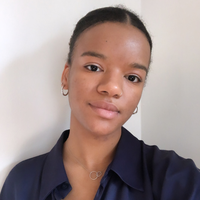The True Story Behind 'Judas and the Black Messiah'
What you need to know about Fred Hampton and the FBI's conspiracy to take him down.
Fred Hampton’s assassination was planned and coordinated by the FBI and the Chicago Police Department.The FBI still keeps tabs on Black organizations.
The struggle for Black liberation doesn’t begin and end with Malcolm X and Martin Luther King, Jr. In the 1960s alone, there were a number of organizations working to secure civil rights and economic justice for African-Americans–including MLK’s Southern Christian Leadership Conference (SCLC); the NAACP; the Student Nonviolent Coordinating Committee (SNCC); and the Congress for Racial Equality (CORE). While these associations generally pursued their goals through civil disobedience and the courts, it was the Black Panther Party that eschewed the establishment in favor of leftist community organizing, a focus on Black power, and military tactics.
The film Judas and the Black Messiah follows the rise of Black Panther Chairman Fred Hampton (Daniel Kaluuya), the head of the Illinois chapter of the party. Filmmaker Shaka King tells the true story of Hampton and Bill O’Neal (LaKeith Stanfield), the car thief turned FBI informant forced to undermine the organization from the inside and participate in Hampton’s assassination. The movie is blistering in its portrayal of the conspiracy between the federal government and the local police department to silence Hampton. For his blistering portrayal of Hampton, Daniel Kaluuya earned an Academy Award for Best Supporting Actor at the 2021 Oscars.
This story is bound up in the true currents of history, which is wholly different from the ones that have defanged revolutionary progressives like MLK or swept the radical insights of the Black activists under the rug. In the spirit of Judas and the Black Messiah, here’s the true story of Fred Hampton, Bill O’Neal, and the Black Panther Party.
The original Black Panther Party was formed in 1966.
By the middle of the 1960s, systemic issues in Black communities remained unaddressed. Although the prowess of groups like Martin Luther King Jr.’s SCLC and the civil disobedience of SNCC and CORE led to measurable civil rights achievements, the reality of economic injustice and police brutality was stark. As a result, movements emerged to not only demand constitutional rights but also Black political power.
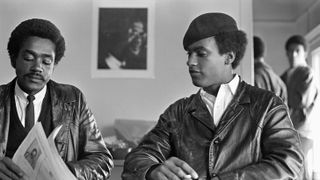
Huey P. Newton, founder of the Black Panther Party, sits with Bobby Seale at party headquarters in San Francisco in 1967.
One of the groups to gain a foothold was the Black Panther Party for Self-Defense, later known simply as the Black Panther Party. Founded by Oakland college students and devoted activists Huey P. Newton and Bobby Seale in 1966, the anti-imperial, anti-fascist organization sought to empower their community through aggressive tactics aimed at combatting police brutality and adopting socialist policies.
At the party’s height between 1968 and 1972, they operated chapters in cities across America, the United Kingdom, and Algeria. By 1982, the last of its chapters dissolved.
Stay In The Know
Get exclusive access to fashion and beauty trends, hot-off-the-press celebrity news, and more.
The party’s political platform advocated for housing, economic and social justice for Black people.
While the Black Panther Party is well known for their tactics of armed self-defense in black berets and leather jackets, their political goals went beyond policing the police. Known for their slogan “power to the people,” the group recruited men and women of all ages who grew tired of incremental change and wished to make an immediate difference.
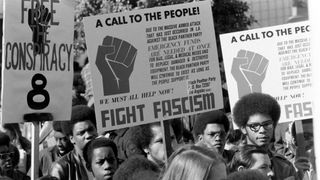
The Black Panther Party staging a protest against fascism in San Francisco, circa 1970.
Shortly after the BPP was formed, they released a Ten-Point Program, which outlined the goals they had in mind for Black communities. Published in the organization’s May 15, 1967 issue of their newspaper, Black Panther, under the title “What We Want Now! What We Believe,” this list advocates for improved housing, education, and employment opportunities together with the end of police brutality and depopulating prisons. Although the original plan makes direct reference to the Black struggle, the BPP did embrace a multi-racial coalition to fight capitalism globally. The party also organized free breakfast programs, medical clinics, and classes on figures like Franz Fanon.
Fred Hampton was the Chairman of the Illinois chapter of the Party and the deputy chairman of the national BPP.
After growing up in the suburbs of Chicago and graduating from Proviso East High School with Honors, charismatic Hampton became politically active. As one of the leaders of the NAACP’s Suburban Branch Youth Chapter, he used his preternatural organizing and oratorical skills to raise the membership of his chapter from seven to 700, according to the Chicago Tribune.
By November 1968, the 20-year-old activist drifted toward the Illinois Chapter of the Black Panther Party and opened the office with Bobby Rush (the current US Representative in Congress). Historians note that Hampton likely found the BPP’s politics more attractive–while the NAACP favored change within the establishment, Hampton advocated for socialism, black self-determination, and a direct assault on police brutality.
But Hampton wasn’t just concerned with the dignity and quality of life of African-Americans in Chicago. By May 1969, he formed what he called the “Rainbow Coalition,” a multi-racial coalition which united rival street gangs, working class whites, and others in the fight for self-determination for all oppressed people.
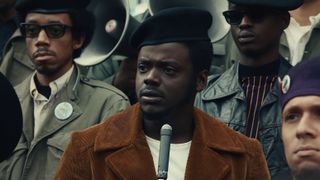
Daniel Kaluuya as Fred Hampton in the film Judas and the Black Messiah.
The party was targeted by the FBI and J. Edgar Hoover’s Cointelpro spy program.
Under the leadership of J. Edgar Hoover, the FBI established a spy program called the Counter Intelligence Program (abbreviated as Cointelpro) in 1956. Through illegal wiretapping, paid informants, and other maneuvers, the FBI kept tabs on organizations that they deemed a threat to American life. This included socialist organizers, feminist groups, anti-war protestors, the American Indian Movement and civil rights activists–including MLK, Malcolm X, and even Muhammad Ali. Although the targets were generally leftist or left-leaning organizations, Cointelpro did keep tabs on the Ku Klux Klan as well.
The program didn’t stop at spying. Using coordinated efforts to undermine organizations–including blackmail, psychological warfare, and even assassination–the FBI planted bugs, sent forged documents, initiated smear campaigns, and wrongfully imprisoned their targets. According to a 1976 staff report of the Senate Select Committee on Intelligence Activities, Cointelpro directly contributed to a climate of suspicion and violence which lead to the deaths of at least four Black Panthers.
According to the New York Times, the report “portrays a campaign in which the bureau used a legion of informers, sometimes as provocateurs, and close cooperation with local police antiradical squads to sow confusion, fear and dissension among the Panthers. Cartoons attacking them, purportedly from rival groups, were distributed to aggravate antagonisms. Stories were planted with newspaper and television outlets to put the Panthers and their supporters in a bad light. Bogus messages were sent to cause rifts between the party and its white leftist supporters.”
According to a J. Edgar Hoover memo, the goals of Cointelpro sought to prevent the formation of an effective Black political group and discrediting them in both Black, white, and activist communities. He wrote, “Prevent the RISE OF A 'MESSIAH' who could unify, and electrify, the militant black nationalist movement.”
In 1971, Cointelpro was busted after the Citizens’ Commission to Investigate the FBI, an activist group who stole the papers from a Media, Pennsylvania FBI office, released them to the press.
Bill O’Neal was the FBI informant tasked with spying on Hampton.
William O’Neal, a 17-year-old car thief, became an FBI informant in 1966 to avoid serving jail time after he was tracked down by Agent Roy Martin Mitchell. By 1968, his assignment was simple–infiltrate the Illinois chapter of the Black Panther Party and get close to Fred Hampton. While O’Neal continued to take money from the FBI, he became the chief of security for the chapter and oversaw the keys to both the headquarters and safe houses.
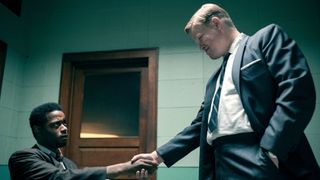
LaKeith Stanfield as William O’Neal and Jesse Plemons as Agent Roy Mitchell in Judas and the Black Messiah.
Throughout O’Neal’s time as a double agent, he supplied information to Agent Mitchell. One of the most consequential documents includes the floor plan of the Panther’s headquarters, which was the site of Hampton’s assassination in December 1969. Following Hampton’s death, O’Neal entered witness protection in 1973 and adopted the name William Hart. He spent some time in California and returned to Chicago in 1984.
In 1990, O’Neal was featured in the documentary “Eyes on the Prize,” where he defended his involvement with the FBI. Shortly after taping, O’Neal ran onto the Eisenhower Expressway in Maywood and died after he was struck by a vehicle, according to the Chicago Tribune.
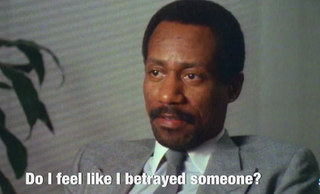
William O’Neal in an interview from the documentary Eyes on the Prize.
Fred Hampton’s assassination was planned and coordinated by the FBI and the Chicago Police Department.
On December 4, 1969, the Chicago Police carried out a pre-dawn raid that left Black Panther Party Leaders Fred Hampton and Mark Clark dead, with several others wounded. Shot twice through the head while his partner, 39-week-pregnant Akua Njeri (formerly known as Deborah Johnson), cowered beside him in bed, the FBI succeeded in covering up their role in the raid until release of the Cointelpro papers in 1971 and the years-long fallout.
Through O’Neal, the FBI obtained the floorplan of the west side apartment that served as the BPP headquarters which identified where Hampton slept. Conspiring with the Chicago Police Department to raid the building, the FBI also managed to arrest seven others for bogus attempted murder charges. After 13 years of litigation, the People’s Law Office won a $1.8 million settlement for the civil rights suit brought by the families of Mark Clark and Fred Hampton for the government’s role in their assassinations.
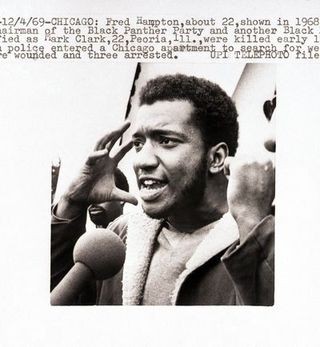
An image of the report of Fred Hampton’s death in 1969.
The FBI still keeps tabs on Black organizations.
Documents obtained by Foreign Policy magazine in 2017 reveal that the FBI counterterrorism unit has identified “black identity extremists,” that may be a threat to law enforcement.
The report reads, “The FBI assesses it is very likely Black Identity Extremist (BIE) perceptions of police brutality against African Americans spurred an increase in premeditated, retaliatory lethal violence against law enforcement and will very likely serve as justification for such violence.”
Foreign Policy noted that “former government officials and legal experts said no such movement exists, and some expressed concern that the term is part of a politically motivated effort to find an equivalent threat to white supremacists.”
Daniel Kaluuya honored Fred Hampton in his Oscar acceptance speech.
Kaluuya won the Oscar for Best Supporting Actor for his portrayal of Hampton. In a moving–and sometimes goofy–acceptance speech, the actor touched on Hampton’s powerful legacy. “To Chairman Fred Hampton...How blessed we are to live in a lifetime where he existed. Thank you for your light. He was on this earth for 21 years. 21 years, and he found a way to feed kids breakfast, educate kids, give free medical care, against all the odds,” he said.
“The Black Panther Party, they showed me how to love myself, and with that love, they overflowed it from the Black community to other communities. And they showed us the power of unity. That when they play divide and conquer, we say unite and ascend. Thank you so much for showing me myself.”
Zoe Guy is the digital fellow at Marie Claire, where she covers pop culture, hot celebrity gossip, movies and TV. She’s obsessed with Martin Scorsese’s adaptation of The Age of Innocence, anything written by Jesmyn Ward and stan Twitter.
-
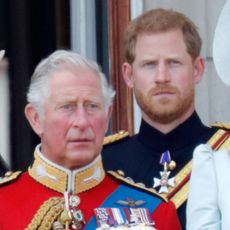 Prince Harry Wasn't Informed About King Charles's Hospitalization
Prince Harry Wasn't Informed About King Charles's Hospitalization"It looks like the duke only found out about his father's latest health update through the media."
By Amy Mackelden Published
-
 Jennifer Lawrence Styles a $7,500 Outfit With $100 Sneakers
Jennifer Lawrence Styles a $7,500 Outfit With $100 SneakersThe actress paired Prada and Celine with her $100 footwear.
By Amy Mackelden Published
-
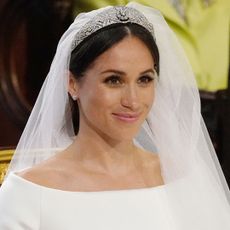 Meghan Markle and Her Makeup Artist Confirmed All Her Royal Wedding Beauty Products
Meghan Markle and Her Makeup Artist Confirmed All Her Royal Wedding Beauty ProductsAnd yes, you can shop them all here.
By Kayleigh Roberts Published
-
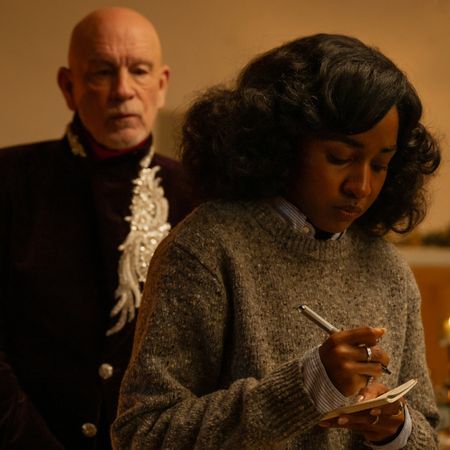 In 'Opus,' Cult Leaders and Pop Stars Are One in the Same
In 'Opus,' Cult Leaders and Pop Stars Are One in the SameThe A24 film's costume and production designers open up about crafting fictional pop icon Moretti’s style and mysterious estate.
By Sadie Bell Published
-
 'On Becoming a Guinea Fowl' Is a Revolutionary Call to Speak Up Against Female Abuse
'On Becoming a Guinea Fowl' Is a Revolutionary Call to Speak Up Against Female AbuseAfter showing how a culture of silence around abuse can devastate entire generations, the arresting A24 film holds a mirror up to the audience and asks, \201cWhat happens if we scream?\201d
By Quinci LeGardye Published
-
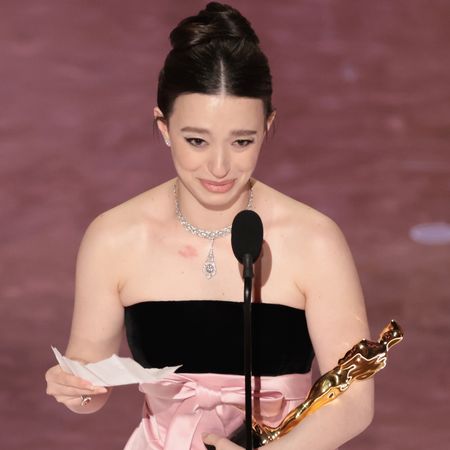 'Anora' Star Mikey Madison Takes Home the Best Actress Award at the 2025 Oscars in a Surprise Win
'Anora' Star Mikey Madison Takes Home the Best Actress Award at the 2025 Oscars in a Surprise Win"I will continue to support and be an ally."
By Quinci LeGardye Published
-
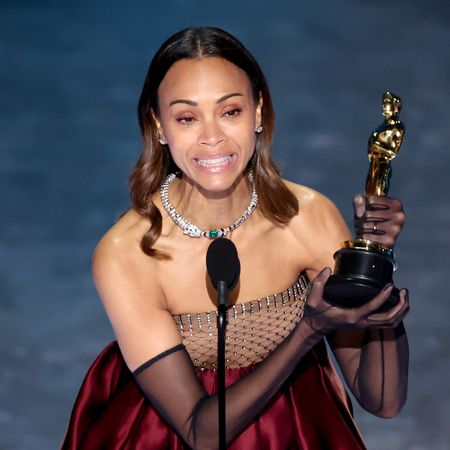 Zoe Saldaña Becomes the First American of Dominican Origin to Win an Oscar
Zoe Saldaña Becomes the First American of Dominican Origin to Win an Oscar"I am the first American of Dominican origin to accept an Academy Award and I know I will not be the last."
By Quinci LeGardye Published
-
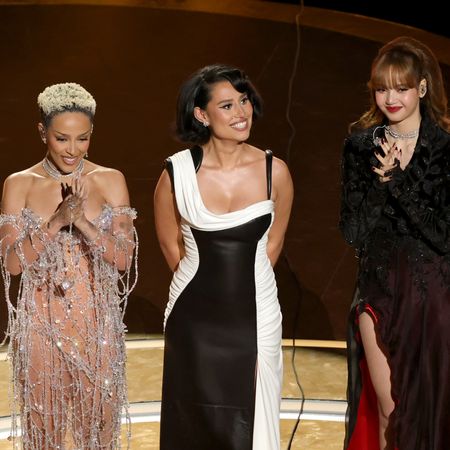 LISA, Doja Cat, and Raye Perform a Glamorous 'James Bond' Tribute at the 2025 Oscars
LISA, Doja Cat, and Raye Perform a Glamorous 'James Bond' Tribute at the 2025 OscarsThe Academy Awards are for the pop girls, actually.
By Quinci LeGardye Published
-
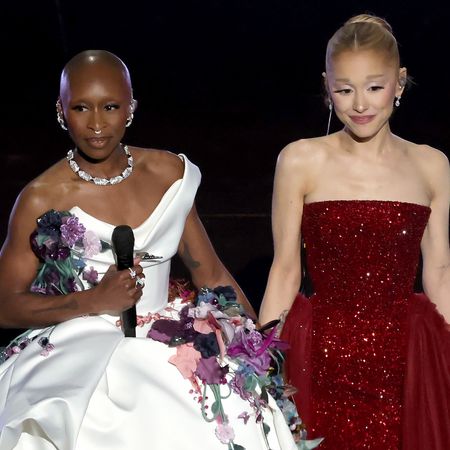 Ariana Grande and Cynthia Erivo Open the 2025 Oscars With a Showstopping 'Wicked' Performance
Ariana Grande and Cynthia Erivo Open the 2025 Oscars With a Showstopping 'Wicked' PerformanceThe awards show began with a medley of songs inspired by the Best Picture-nominated film and adaptations of 'The Wizard of Oz.'
By Quinci LeGardye Published
-
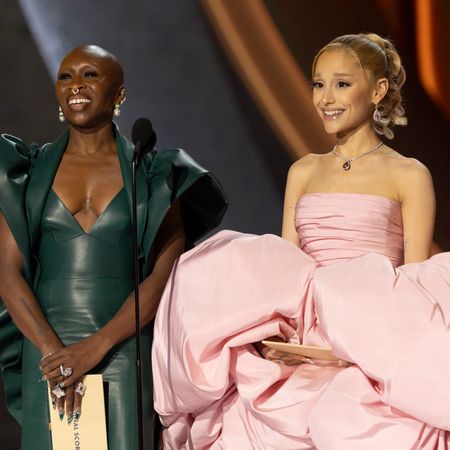 Everything to Know About the 2025 Oscars, From How to Watch to the Nominations
Everything to Know About the 2025 Oscars, From How to Watch to the NominationsIt's bound to be an unpredictable awards show.
By Quinci LeGardye Last updated
-
 Cazzie David Spent Five Years Fighting to Make an "Anti-Rom-Com" About Emotional Abuse
Cazzie David Spent Five Years Fighting to Make an "Anti-Rom-Com" About Emotional AbuseThe writer/actress opens up about how she found catharsis after a breakup by making 'I Love You Forever.'
By Sadie Bell Published
